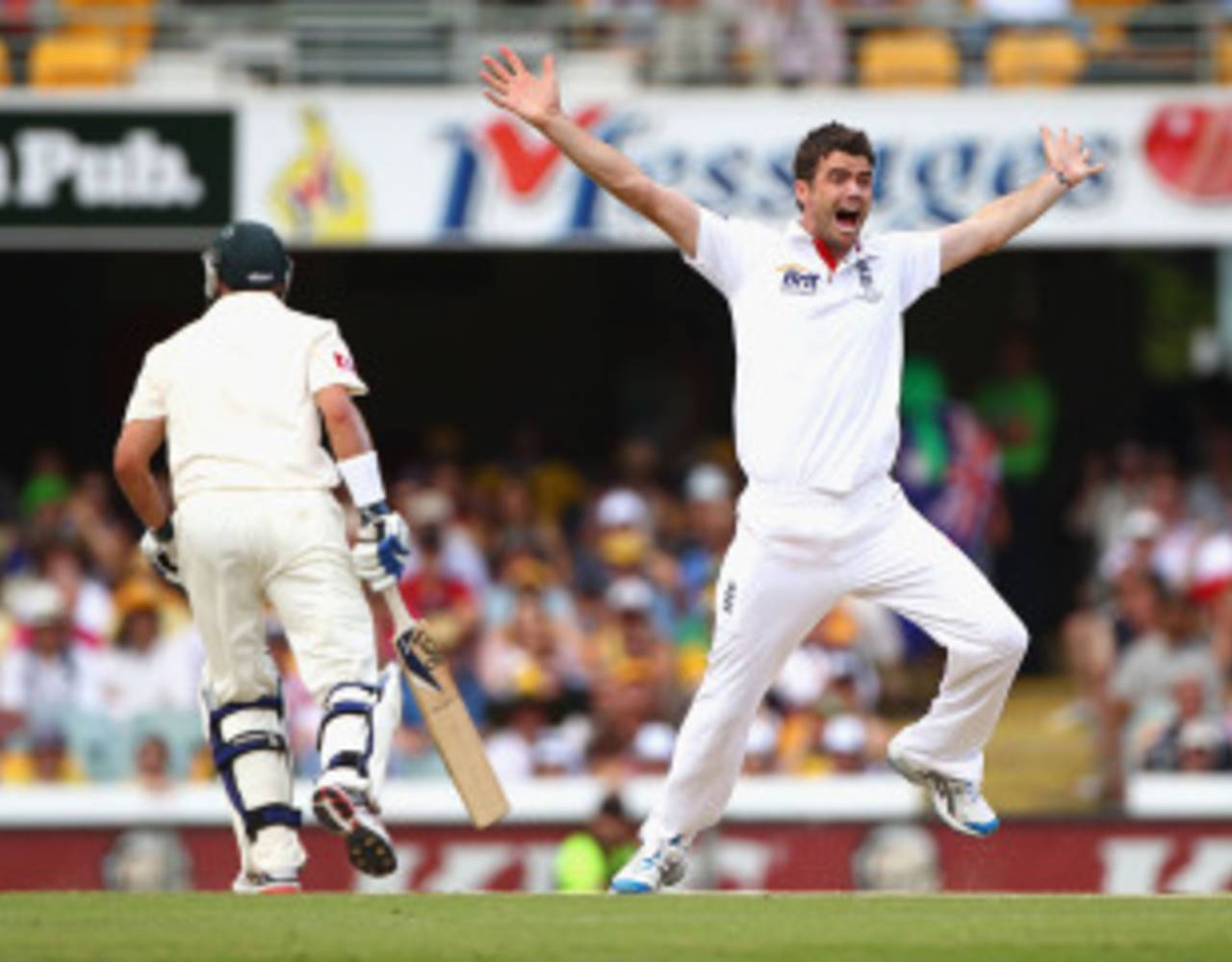The hour that mattered
Had we been playing in a log-fenced park up the road, and not in a cauldron of concrete and plastic, the seagulls would have been spooked and the people pushing their prams around the oval mystified
Christian Ryan
25-Feb-2013

James Anderson launched into several emotive appeals during a mesmerising morning spell • Getty Images
Had we been playing in a log-fenced park up the road, and not in a cauldron of concrete and plastic, the seagulls would have been spooked and the people pushing their prams around the oval mystified. It was that kind of morning in Brisbane. Three times in 15 minutes a beseeching yell cut the air. The people would have looked up from their prams, seen that no one in the middle had moved, and shuffled on their way again. What just happened?
It is one of Test cricket’s charms that when not much seems to be happening, that’s when the really big things are happening. An hour went by. Those three lbw shouts against Mike Hussey were the only moments of uproar. One was not out, another was out yet not out, and the other one was not out, then out, then not out again. Everything else seemed unspectacularly uncomplicated. There were not many runs. There were a great many instances of batsmen poking and missing. And the bowlers kept landing the ball on the same spot.
It was fine bowling – exquisite bowling, in Jimmy Anderson’s case. Had Australian Rules been the game, England might have gone three goals ahead. But Test cricket is not meant to be fair. Momentum does not always translate into one team is winning and the other team’s losing. You actually have to take a wicket. For an hour that wicket seemed imminent. And then it didn’t.
It can grate on a fielding side, knowing they have the momentum but they do not have the wicket. Suddenly the hour was up and you got a feeling – a feeling that England’s bowlers had a feeling that wicket wasn’t going to come. Then Stuart Broad at mid-off misfielded, donating Brad Haddin a run. A near-overthrow nearly donated him two. It was a moment’s clumsiness. It was a dam breaking. Next thing you knew, the crack Gundagai slugger that had lain dormant in Haddin was leaping one step down and lashing Anderson high and straight. It was the morning’s 85th ball, the first truly belligerent stroke. And that feeling you had wasn’t a feeling anymore. It was a fact.
For the remaining five and a half hours a highlights-reel atmosphere prevailed. Hussey’s batting average, fresh from a one-innings stint in sub-50 terrain, was returned to its natural habitat of 51.50. Haddin blocked and clobbered with such gusto that poor Tim Paine, his feather-fingered understudy, must have wondered whether his destiny is to be the greatest Australian wicketkeeper never to play five Tests. The runs, they flew. The drama was thick. England’s captain nearly bagged a pair. It was all happening.
Except, of course, that it had already all happened, in that first hour, when it was hard to know exactly what was happening – just that, whatever it was, it was big. By summer’s end we might realise how big.
Christian Ryan is a writer based in Melbourne. He is the author of Golden Boy: Kim Hughes and the Bad Old Days of Australian Cricket and, most recently Australia: Story of a Cricket Country